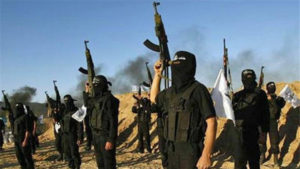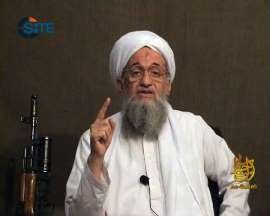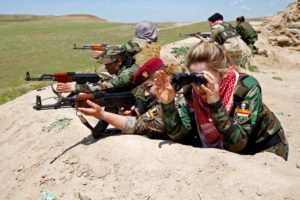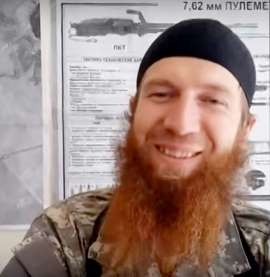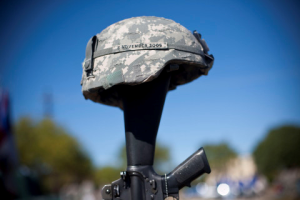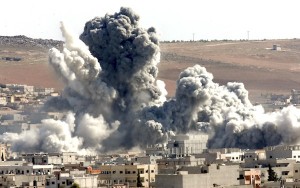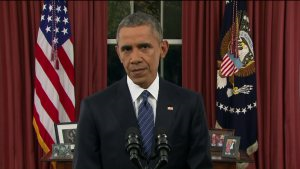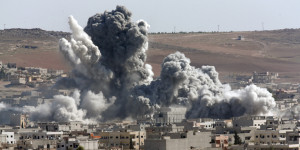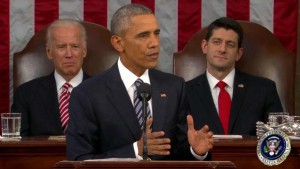
This won’t be a thorough point-by-point critique of President Obama’s final State of the Union speech, but I want to offer a few observations of what I believe to be the high points . . . and a particular low point of his speech.
Generally, I believe he hit the right tone and sent the correct message on a number of points.
Such as:
Our political system needs an overhaul. The president sought to quell the “toxic” atmosphere that lingers over Capitol Hill and along the presidential campaign trail. He acknowledges that a State of the Union during a presidential election year is going to run headlong into partisan divisions. But it need not result in turning adversaries into enemies, he said.
This toxicity isn’t new. It’s shown itself at times during the entire existence of the Republic. Its victims have been politicians of both political parties — and more than that if you want to count the Whigs, which morphed into today’s Republican Party.
But just because we’ve had this kind of loathing of individuals with whom we differ for as long as any of us can remember doesn’t negate the need to change it.
The anger has spread to those who worship certain religious faiths and who are victimized solely because of their beliefs. Such hatred must cease. It is, as the president said, “not who we are.”
Obama is right, however, to lay the bulk of the responsibility for that change on us out here in Voter Land. The politicians do our bidding. If we demand a change, then they’ll have to heed us.
Correct?
The economy has turned around. He hit on something most of us knew he would say. The nation’s economic standing is far better now than it was when Barack H. Obama took office.
We’ve cut joblessness in half; reduced the annual budget deficit by 75 percent; our auto industry is setting records; our banks and other financial institutions are healthy again.
Does the president deserve all the credit? No. It did happen on his watch.
We remain the world’s indispensable nation. The presidential candidates have been making hay on the stump about the United States’ lack of “greatness.” They contend we are weak, that we cower in the face of danger.
The president said, though, that the world “doesn’t turn to Moscow or Beijing” when times get dicey. “It turns to us.”
Why is that so, if we’re such a basket case?
We’re continuing to fight the war on terror aggressively. The president told us of how more than 10,000 air strikes have killed Islamic State leaders and fighters, disrupted command and control operations, obliterated ISIL’s oil supplies — and is doing so with the help of 60 nations allied behind our effort to destroy these terror networks.
Yet his foes keep saying we should “do more.” One of them, U.S. House Armed Services Committee Chairman Mac Thornberry, said the president isn’t doing enough. What, then, does Chairman Thornberry propose? Oh, yeah. Let’s put “boots on the ground,” which is a cleaned-up way to say, “Let’s put even more young American lives in jeopardy.”
No one should be naïve to think this concentrated air campaign against ISIL, al-Qaeda or al-Shabaab is going to go smoothly all the time. Wars never do.
As for the nature of this war . . .
It is a world war, Mr. President. Obama sought to downgrade this conflict into something less than a global conflict. He is mistaken.
It is true that we aren’t engaged on battlefields around the world the way we were from 1941 until 1945. This war, though, is different in every conceivable way. We aren’t fighting nation-states. We are fighting ideologies, whose practitioners live among us and who prey on innocent victims, so-called “soft targets.”
I believe it is a world war, but not in the historical sense of the term.
* **
Barack Obama didn’t likely change many minds last night. His approval ratings might tick up just a bit, but then they’ll settle back down to where they have stood for years. His foes will be sure to keep beating the drums of pessimism and gloom.
Me? I’m as concerned as the next guy about the future. Then again, I’ve lived long enough and seen enough political turmoil — and warfare — to understand that we are truly are an exceptional nation.
Well done, Mr. President.
